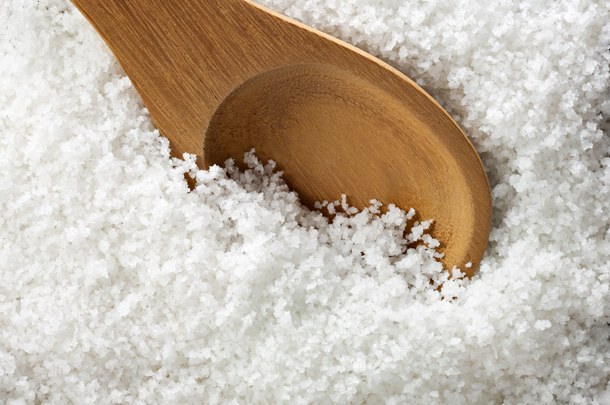The role of salt for the human body
The role of NaCl in a person's life is because when dissolved it dissociates into sodium cations and chlorine anions. Sodium chloride is necessary to maintain constancy of the salt composition of the blood and a certain level of osmotic pressure. From the osmotic pressure depends on the amount of liquid that is retained in the blood plasma and other body tissues, so when salt is dehydration.
Sodium ions are involved in the contraction of muscle fibers, transmission of nerve impulses and other important processes, so when there is insufficient concentration of Na+ in the body develops General weakness, increased fatigue, occur neuromuscular disorders.
In addition to pure salt, sodium is also contained in the marine and rock salt, fish and meat products, broths and brines, salted and pickled vegetables, cheese, mineral water, etc.
How much salt a person needs per day
The normal daily requirement of salt for the inhabitants of temperate climate is about 10-15 g sodium Chloride contained in natural foods, bread, used in cooked foods and is added to the finished dish. All this must be considered when calculating how much salt you eat in a day.
Salt brings out the flavor in fresh food, stimulates appetite and secretion of gastric juice.
Consumption of salt per day depending on intensity of physical and mental stress, weather conditions, sweating. The intake of salt increases with increased perspiration, other forms of loss of body fluids (diarrhea, vomiting, profuse urination, bleeding) and heavy loads.
How dangerous is the lack of salt
With a lack of salt the body begins to "pull" it from its own tissues. In the first place begin to break down bone and muscle tissue. Electrolyte imbalance leads to increased excretion of other trace elements such as calcium, phosphorus, etc. as a result of salt deficiency may develop depression, mental diseases, spasms of smooth muscles, osteoporosis, digestive disorders and heart. With long-term lack of salt may be fatal.
Why excess salt is harmful
Abuse of salty food causes fluid retention in the body, which accumulates in fat cells. This is manifested by edema, metabolic disturbances, increases the load on the heart, vessels and kidneys. Increased appetite, provoked by salinity, together with impaired metabolism turns into weight gain.
Excessive consumption of salt leads to persistent high blood pressure – hypertension. This greatly increases the risk of heart attacks and strokes.
